Yoshihiro Yauji
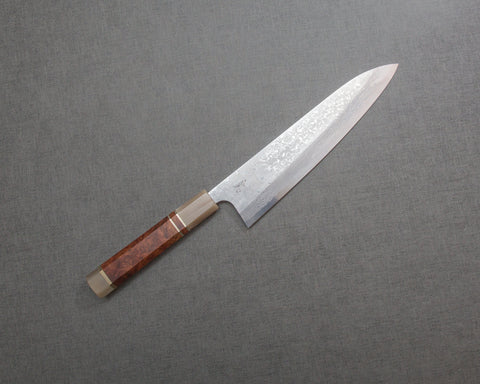
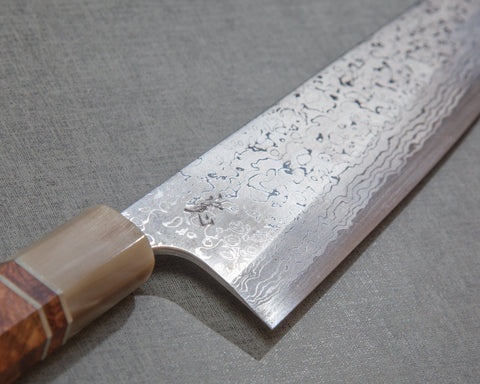
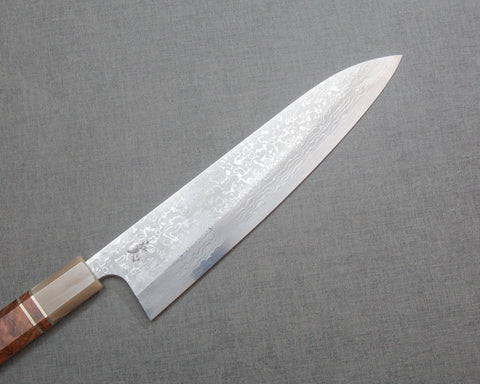
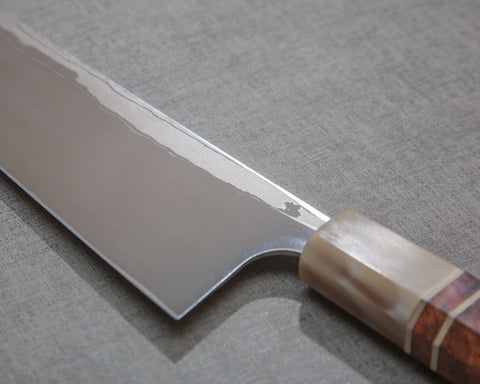
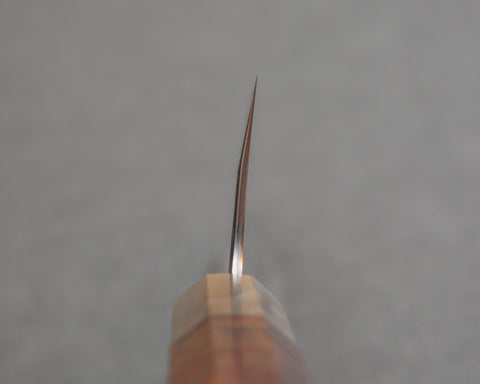
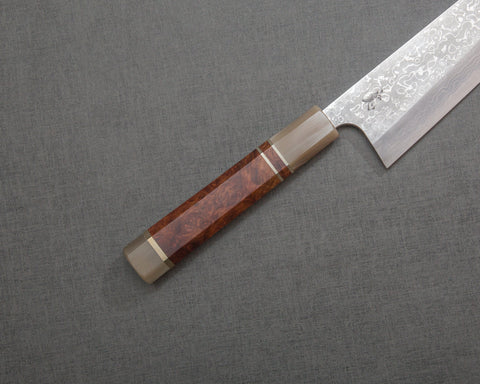
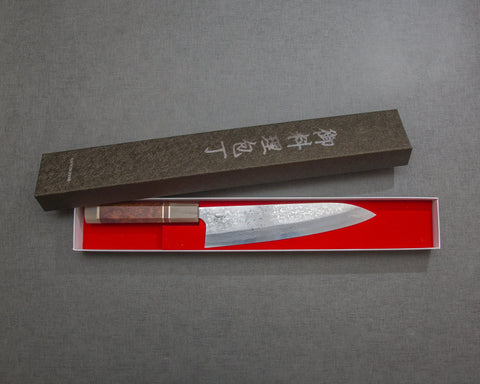
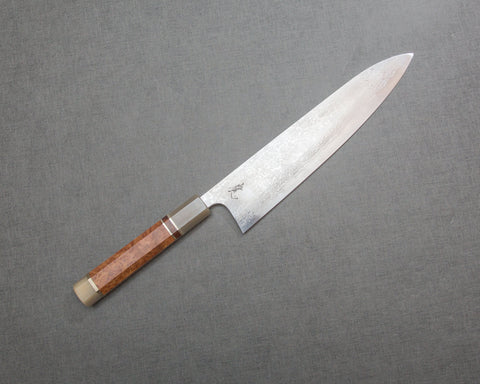
Yoshihiro Yauji Aogami #2 Damascus Gyuto
Pickup currently unavailable
This single-edged Gyuto is hand-forged with Aogami #2 steel, cladded with soft iron, heat-treated to 61-62 HRC, hand-ground and hand-sharpened by the young and aspiring artisan Mr. Yoshihiro Yauji. Yoshihiro’s exceptional attention to detail is showcased in the elegant Damascus Kyomen (mirror) finish and Kasumi polish. The Damascus jigane wrapped around the core to the back of the knife (Jiai area) in this awase-construction knife, which is exquisite. The choil is so well polished that it's mirror reflective. It’s worth noting that Mr. Yoshihiro Yauji does forging, grinding, finishing, and sharpening, all by himself.
Spec:
- Origin (Made in): Echizen, Fukui Prefecture, Japan
- Brand: Yoshihiro Yauji
- Craftsman: Yoshihiro Yauji
- Knife Type: Gyuto
- Blade
- Construction: Awase (Kasumi)
- Grind: Single Bevel (Right-handed)
- Hagane (Core Steel): Aogami #2 (Blue #2)
- Jigane (Cladding): Soft Iron
- Hardness: 61-62 HRC
- Hand-forged, hand-ground, hand-sharpened
- Blade Finishes:
- Damascus
- Kyomen (Mirror)
- Kasumi Polish
- Blade Length: 210mm (8.3") / 240mm (9.4")
- Blade Height (at heel): 49mm / 53mm
- Spine Thickness
- Above heel: 3.0mm / 3.0mm
- Middle: 2.7mm / 2.6mm
- Handle
- Shape: Hachikaku (Octagonal)
- Material: Rosewood (Dalbergia Odorifera)
- Kuchiwa / Tsukajiri: Marble Buffalo Horn
- Divider: Rosewood (Dalbergia Odorifera)
- Ginmaki: Nickel Copper (x3)
- Length: 138mm / 145mm
- Overall Length: 354mm / 399mm
- Weight: 204g (7.20oz) / 225g (7.94oz)
- Hand Chiseled Mark: In Japanese Kanji "Hiro" (寛)
About Yoshihiro Yauji 弥氏 吉寛
It is not rare that a person’s childhood experiences had an influence on one’s career choice. It certainly is the case with Mr. Yoshihiro Yauji. Born in 1983, Yauji-san developed an interest in DIY as a child, and he gradually fell in love with tools made of steel. He found a very special connection with knives because knives in his own words "represent the starting point of mankind" (人間の原点). "From the Stone Age, human-beings started using knives to cut trees and eventually led to the development of civilization", said Yauji-san. In 2003, Yauji-san became an apprentice of Master Hideo Kitaoka, who is considered one of the best artisans in Japan. After more than 15 years of training, Yauji-san finally started making knives independently in 2019. It’s worth noting that he does forging, grinding, finishing, and sharpening, all by himself.
Care:
Aogami #2 (Blue #2) steel is a premium Japanese high carbon steel for knife making. Despite some corrosion-resistant quality (for a carbon steel), it is not stainless, therefore you should wipe your knife dry after each use. Patina will develop over time. Rust may develop if left in prolonged contact with water or acidic food. Use a rust eraser to clean if rusts develop. Avoid cutting into bones, frozen foods, hard fruit pits.
Cutting Surface:
Recommended cutting surface: wood, rubberized boards and high-end composites, and quality plastics such as polyethene make acceptable cutting surfaces, and will help protect and prolong knife’s edge. AVOID glass, metal, countertops, and other rigid, non-forgiving surfaces.
Sharpening:
We recommend sharpening all quality Japanese knives on whetstones, as we believe they yield the best results for your knives.
Free Shipping
Free Shipping on most orders.
30 Days Return
Return unused within 30 days for a full refund, no questions asked (terms apply).
Top Japanese Makers
All knives made in Japan by top Japanese knife makers.
About
Burrfection Store sources professionally designed sharpening products, and knives from top Japanese craftsmen.
